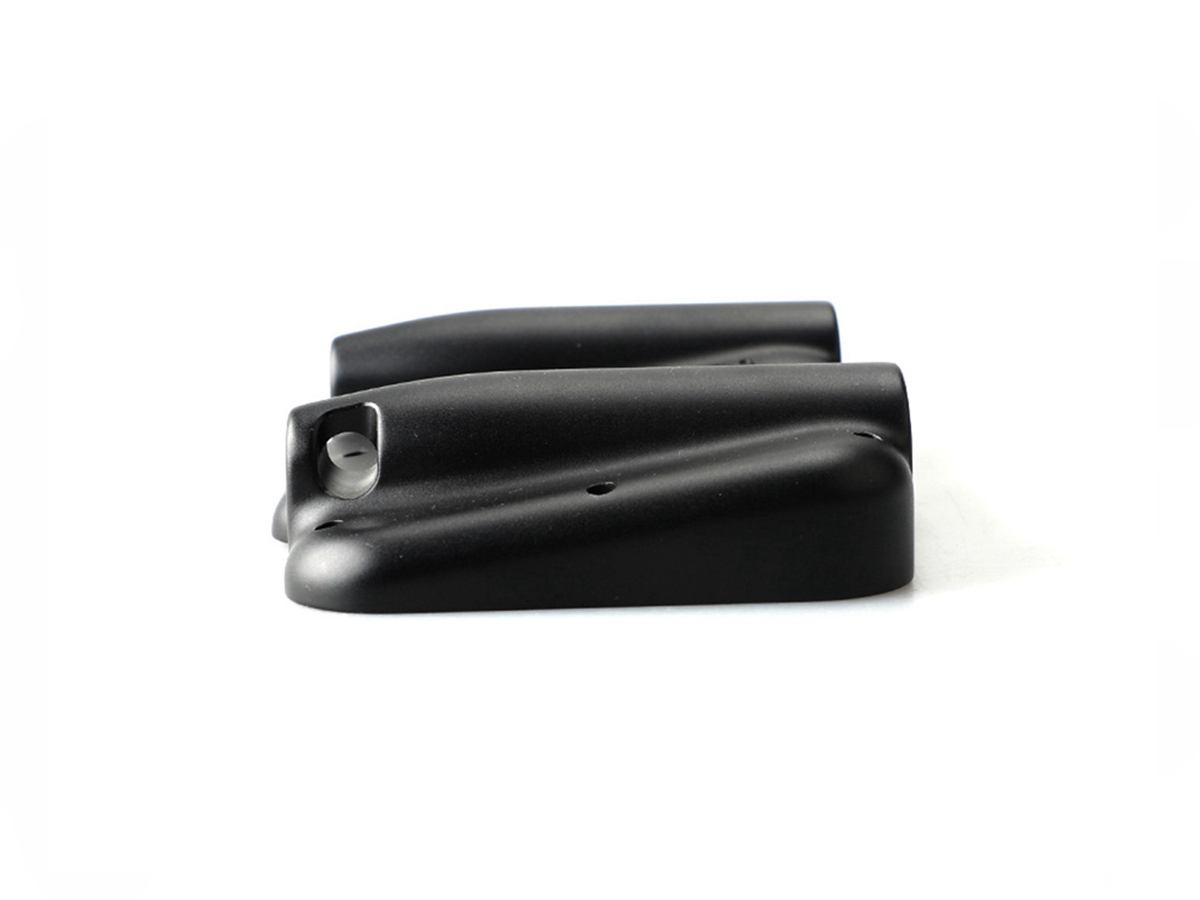Precision CNC Machined Housings for Consumer Electronics and Appliances
Introduction to CNC Machined Housings for Consumer Products
In today's competitive electronics and appliance market, consumer expectations for compact design, high precision, and excellent aesthetics continue to rise. Precision CNC machining services have emerged as the optimal solution, enabling the manufacturing of complex, reliable, and visually appealing housings. Utilizing advanced processes like multi-axis machining and precision CNC milling, manufacturers create housings from materials such as aluminum alloys, stainless steel, engineering plastics, and copper, satisfying stringent dimensional requirements and aesthetic standards.
CNC machined housings typically include components such as smart home device enclosures, smartphone frames, audio device shells, appliance front panels, wearable device cases, and rugged electronic housings—each demonstrating the essential role of CNC machining in today's consumer products market.
Material Performance Comparison for Consumer Electronics and Appliance Housings
Material | Tensile Strength (MPa) | Thermal Conductivity (W/m·K) | Machinability | Corrosion Resistance | Typical Applications | Advantages |
|---|---|---|---|---|---|---|
310 | 167 | Excellent | Excellent (>800 hrs ASTM B117) | Smartphone frames, appliance covers | Lightweight, excellent thermal conductivity | |
580 | 16.2 | Good | Superior (>1000 hrs ASTM B117) | Premium appliance housings, audio devices | Exceptional durability, corrosion resistance | |
40-50 | 0.25 | Excellent | Good chemical resistance | IoT device casings, internal housing parts | Cost-effective, lightweight | |
220-350 | 391 | Excellent | Good (>500 hrs ASTM B117) | Heat dissipative enclosures, connectors | Superior thermal and electrical conductivity |
Material Selection Strategy for Electronic and Appliance Housings
Aluminum 6061-T6 provides lightweight structures, outstanding machinability, and excellent thermal conductivity (167 W/m·K), making it ideal for electronics needing efficient heat dissipation, such as smartphone frames and high-performance appliance panels.
Stainless Steel SUS316 offers exceptional strength (580 MPa) and corrosion resistance (>1000 hrs ASTM B117), suitable for durable appliance enclosures, high-end audio equipment housings, and products used in demanding environments.
ABS Plastic is an excellent choice for cost-sensitive applications, delivering good machinability, adequate strength, and chemical resistance for internal housings, sensor casings, and lightweight electronic device bodies.
Copper C110 boasts exceptional thermal conductivity (391 W/m·K), ideal for heat-sensitive electronics enclosures and applications requiring efficient heat dissipation and superior electrical conduction.
CNC Machining Processes for Consumer Electronics and Appliance Housings
CNC Machining Process | Dimensional Accuracy (mm) | Surface Roughness (Ra μm) | Typical Applications | Key Advantages |
|---|---|---|---|---|
±0.005 | 0.2-0.8 | Complex electronic housings, ergonomic appliance casings | Superior precision, complex geometry capability | |
±0.005-0.01 | 0.4-1.2 | Cylindrical housings, appliance fittings | Excellent symmetry, precise rotational features | |
±0.01-0.02 | 0.8-1.6 | Precision mounting holes, ventilation ports | Precise, repeatable hole positioning | |
±0.002-0.005 | 0.1-0.4 | High-finish surface housings, delicate device shells | Exceptionally fine surface finishes |
CNC Process Selection Strategy for Housings
5-Axis CNC Milling is recommended for intricate, high-precision electronic housings and ergonomic appliance designs, creating complex geometries with extremely tight tolerances (±0.005 mm).
Precision CNC Turning provides rotational precision (±0.005 mm), ideal for cylindrical appliance housings, precision fittings, and round electronic device shells.
CNC Drilling ensures highly precise hole alignment (±0.01 mm), vital for electronic components' integration, precise ventilation, and mounting points within consumer electronics and appliances.
CNC Grinding delivers exceptionally fine surface finishes (Ra ≤0.4 µm), ensuring visual and tactile quality for premium appliance housings and sensitive electronics that require superior surface aesthetics.
Surface Treatment Performance for Electronic and Appliance Housings
Treatment Method | Surface Roughness (Ra μm) | Corrosion Resistance | Hardness (HV) | Applications |
|---|---|---|---|---|
0.4-1.0 | Excellent (>1000 hrs ASTM B117) | 400-600 | Aluminum electronics casings, appliance panels | |
0.1-0.4 | Superior (>1000 hrs ASTM B117) | N/A | Stainless steel premium housings, connectors | |
0.6-1.2 | Excellent (>800 hrs ASTM B117) | 300-400 | Appliance covers, decorative housings | |
0.8-1.6 | Good (>500 hrs ASTM B117) | Moderate | General electronic device enclosures |
Typical Prototyping Methods
CNC Machining Prototyping: Highly precise prototypes (±0.005 mm) ideal for testing functional electronics and appliance designs.
Rapid Molding Prototyping: Efficient, accurate prototype housings suitable for market validation and ergonomic evaluation.
3D Printing Prototyping: Quick turnaround, iterative prototyping (±0.1 mm accuracy), excellent for initial design concepts.
Quality Inspection Procedures
CMM Inspection (ISO 10360-2): Dimensional accuracy verification.
Surface Roughness Test (ISO 4287): Surface quality validation.
Salt Spray Test (ASTM B117): Ensuring corrosion resistance standards.
Visual Inspection (ISO 2859-1, AQL 1.0): Confirming aesthetic and functional criteria.
ISO 9001:2015 Documentation: Ensuring full traceability and consistent production quality.
Industry Applications
Consumer Electronics: Smartphone frames, wearable device housings, audio device shells.
Home Appliances: Kitchen appliance panels, smart-home product enclosures, control housings.
Medical Devices: Precision instrument casings, diagnostic equipment housings, medical monitor shells.
FAQs:
What advantages does CNC machining offer in producing electronic and appliance housings?
How can material selection impact the performance of CNC-machined electronic enclosures?
What are the best surface treatments to enhance the durability and aesthetics of appliance housings?
Which prototyping methods are most effective for developing consumer electronics casings?
What quality assurance procedures are crucial for precision CNC machined housings?
3/3

